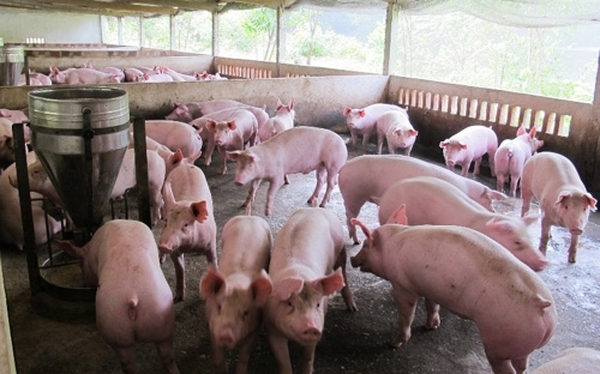 |
| Viet Nam could have a shortfall of 500,000 tonnes of pork, or nearly 20 per cent of demand, in the period until the Lunar New Year in early 2020 due to the effect of African swine flu. |
The number of sows had decreased by 30 per cent from a year ago.
This was an opportunity for the Ministry of Agriculture and Rural Development to outline livestock plans while controlling environmental issues and minimising risks if diseases occurred in future.
It could also create a mechanism to closely monitor and control the pig industry.
The Chinese experience showed it would take one to two years to restructure pig farming, and Viet Nam could learn from it to avoid unfortunate consequences.
The habit of consuming hot meat made chilled meat unpopular, and the hot meat supply chain was increasingly showing weaknesses.
The failure to inventory meat products was causing problems during a crisis, and authorities needed to create a cold supply chain to cope with the crisis and open up export opportunities.
Consumer concerns about the safety of locally produced pork had boosted demand for imported pork.
Pork imports from the US, Canada, Spain, Germany, Poland, and France had skyrocketed in the last four months.
Pork prices would recover and increase in the future due to a supply shortage since most animal husbandry establishments were still afraid of ASF and did not dare replenish their sow herd.
The impact of ASF had increased demand for other meats such as chicken and beef.
With consumers becoming cautious about pork, brand-name products with clear origins, guaranteed quality and safety were in increasing demand.
This was a factor in businesses in the pork supply chain investing heavily in branding and establishing reliable sales channels to create trust in consumers.
“Although accounting for less than 5 per cent of Viet Nam's total pork consumption in 2018, the proportion of branded pork products has achieved remarkable growth in five years.”
The branded pork market was still small but showed extreme promise, persuading key players to quickly step in. — VNS

Pork imports spike, Vietnam's livestock industry under pressure
Vietnam has increased pork imports in the last six months amid the African swine fever epidemic. However, the quality of imports is questionable as Vietnam’s agencies are still weak at quarantine work.

In HCM City, administration, sellers closely monitor pork for disease
Official agencies and distributors in HCM City have dispatched their quality management teams to major slaughtering facilities and wholesale markets to ensure that 100 per cent of pork coming to the market is of good quality and without diseases,
 As of June 24 ASF had broken out in 60 of the country’s 63 provinces and cities, and more than 2.6 million pigs had to be culled, severely affecting the pork demand-supply balance.
As of June 24 ASF had broken out in 60 of the country’s 63 provinces and cities, and more than 2.6 million pigs had to be culled, severely affecting the pork demand-supply balance.